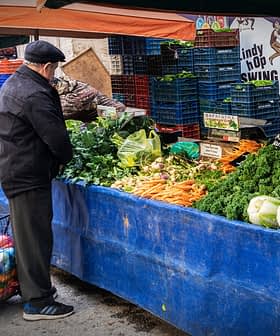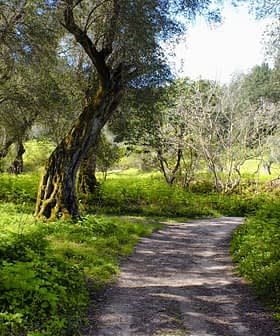
Aris Kefalogiannis
In the U.S. International Trade Commission, report, and elsewhere, New World producers are challenging the effectiveness of the existing the International Olive Council standard, and supporting the adoption of new testing methods such as pyropheophytins (PPPs) and 1,2‑diacylglycerol (DAGs). Olive Oil Times asked three prominent experts whether or not Greece would want to support such modifications of the international standard.
Aris Kefalogiannis, CEO of Gaea Products SA
We welcome the idea of higher quality standards and stricter evaluation criteria for the category of extra virgin olive oil. Eighty-two per cent of Greek olive oil production is extra virgin and within this percentage the majority would still qualify as such even if we applied stricter criteria. We believe that a new stricter standard should be the result of careful evaluation and could include these testing methods or other new methods. We believe that standards like the ones proposed by the Extra Virgin Alliance could safeguard both the quality of the product and the consumer.
Efi Christopoulou, European Commission and International Olive Council chemical and sensory testing expert
The IOC Trade Standard has specified quality and purity criteria in order to improve the quality of olive oil and to protect it from adulteration with other vegetable oils. Since its initial adoption, it has been subjected to a number of modifications, based on the new demands of the market and new developments in the scientific sector. The groups of expert chemists who work on this sector and the results of their research are included in or modify the International Standards. As far as I am concerned, any tightening of quality criteria in the IOC Trade Standard aims to improve the quality of olive oils on the market and promotes all high quality olive oils from any olive oil producing country they come.
Panagiotis Konstantinou, Director of OLITECN, International Olive Council recognized chemical testing laboratory
Reducing the limits of EC 2568/91 in order to ensure quality would work only if certain conditions are met. We have to choose very carefully which parameters and which limits will be modified and any modification should not condemn olive oils, which due to regional differences, may exhibit higher values. For example, olive oils from the western part of Messinia and the island of Zakynthos tend to have naturally occurring levels of erythrodiol and uvaol higher than the IOC limits. Extensive national research needs to be conducted on the characteristics of Greek olive oil in order to know which chemical parameters and to which level we, as a country, can agree to be modified so that high quality olive oils are not disqualified. But most importantly for me, it is the enforcement of the current regulation which matters but which unfortunately is not always the case.








